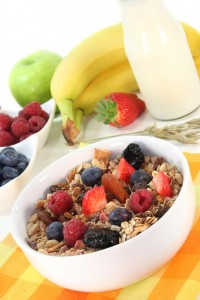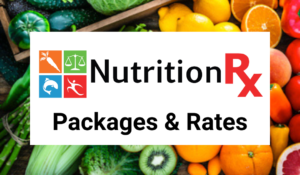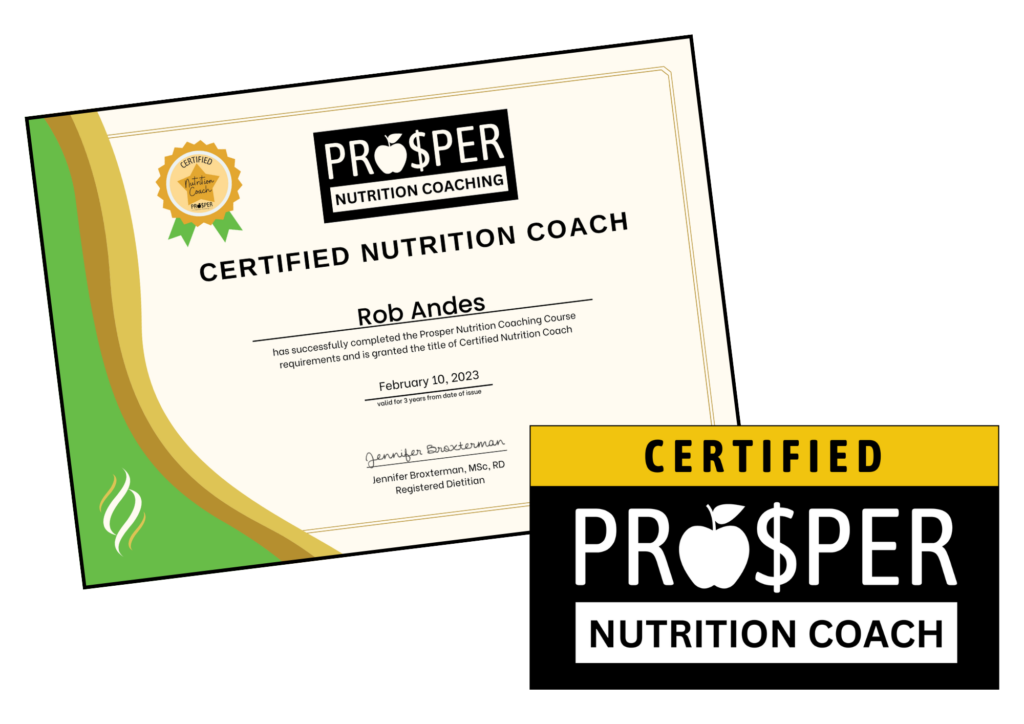

Weight Loss for Athletes (Part 2)
Written By: Jennifer Broxterman, BScH Foods & Nutrition
Registered Dietitian & Sports Nutritionist
NutritionRx (www.nutritionrx.ca)
Email: info@nutritionrx.ca
Top 10 Tips for Athletes Controlling Calories:
1. Eat small, frequent meals and snacks to help control hunger and maintain your metabolism.
2. Don’t skip meals, especially breakfast. If your body senses that calories are in short supply because of hours of fasting, it readily adapts by reducing your metabolic rate, making it tougher to lose weight in the end. Always start your day off with a good breakfast.

3. Eat most of your food during the day to fuel your training, rather than overeating at night.
4. Plan your food intake for the day in advance. Get organized and prepare / pack appropriate meals and snacks rather than relying on cafeterias and fast food outlets at school, work, or to or from practice.
5. Practice mindful eating. Eat meals slowly, chewing your food thoroughly. Learn to eat only to the point of satisfaction – don’t continue to eat until you are stuffed.
6. Don’t drink your calories. Stick to drinking lots of plain water. Limit juice, pop, flavoured or iced coffees, and alcohol.
7. Limit sources of saturated and trans fat in your diet. Replace full-fat dairy products with low-fat or non-fat versions. This applies to milk, cheese, yogurt, ice cream, cottage cheese, and sour cream. It’s also important to remember to include a small amount (2-3 Tbsp) of heart-healthy unsaturated fat each day, from sources like canola, olive, or soybean oil; soft margarines; nuts and seeds like walnuts, almonds, or flaxseeds; and fatty fish like salmon.
8. Eat foods that fill you up, not out. Start a meal with a bowl of soup, a salad, or a small plate of steamed or fresh vegetables to help take the edge off hunger pangs. Filling up with high-fibre, lower-calorie, nutrient-dense foods like vegetables, fruit, beans, or lentils can help you feel satisfied at the end of a meal, while consuming fewer total calories in the process. Make sure you include a source of lean protein at each meal to feel satiated after eating, and to maintain muscle mass while cutting back on calories.
9. When dining out, watch portion sizes and ask for extras on the side. In general, it’s best to cook most of your meals at home and limit the number of occasions you eat out. Most restaurant meals have large portions that pack about 1000 calories per dish. The meals also tend to be very high in sodium, which can cause you to retain water weight. Fat calories can add up quickly, so be mindful of sauces, gravies, and dressings that are fat-based and always ask for these to be served on the side so you can choose how much to consume.
10. Allow yourself to occasionally eat that to-die-for treat, but adjust the portion size. Completely disowning a food you can’t seem to live without will set you up to crave it even more, and ultimately will lead to overeating the forbidden food. Instead of completely disallowing certain foods, give yourself permission to indulge in the occasional treat. Stick to a small amount once or twice a week – it won’t cause you to gain weight, but it’s enough to keep you sane and on track with your weight loss efforts.
If you’re trying to lose weight while still actively exercising, you may find it helpful to meet 1-on-1 with a Registered Dietitian and Sports Nutritionist who can help you cut out the unnecessary calories in your diet without sacrificing your athletic performance. Jennifer can help you identify your exact calorie, carbohydrate, protein, and fat requirements to help you lose weight in a healthy and achievable way, and has unique nutrition software to perform a Computerized Diet Analysis of your current eating patterns.
To schedule a one-on-one nutrition consultation with Jennifer, please email info@nutritionrx.ca.
Wishing you health & happiness,
♡ Jen
Jennifer Broxterman, MSc, RD
Registered Dietitian
NutritionRx: happy, healthy living with our team of Registered Dietitians
Prosper Nutrition Coaching: a world-class nutrition coaching certification
+
+
+
Want to work with a NutritionRx Registered Dietitian?
Learn more here: Nutrition Packages & Rates
+
+
+
Want to become a Certified Nutrition Coach?
Learn more about our habits-based Prosper Nutrition Certification




